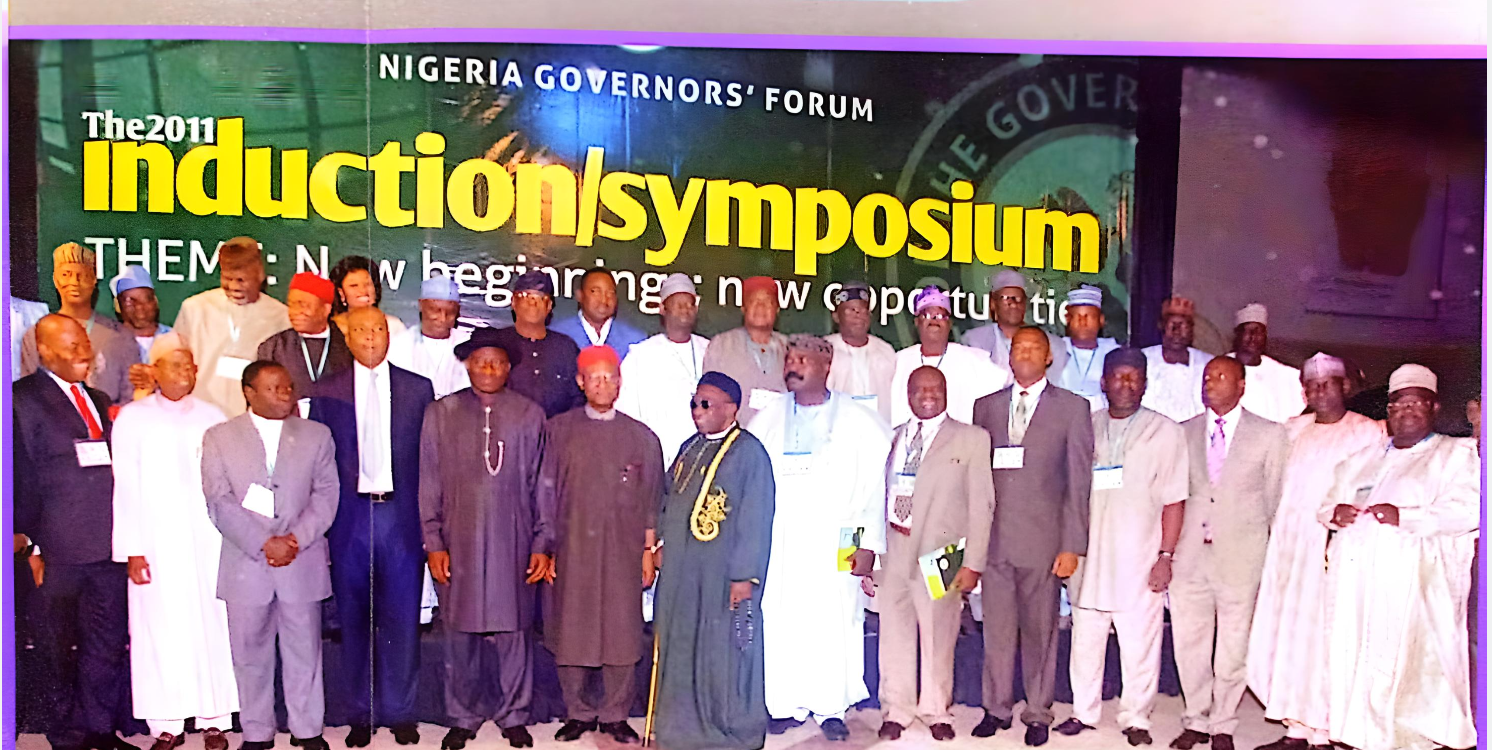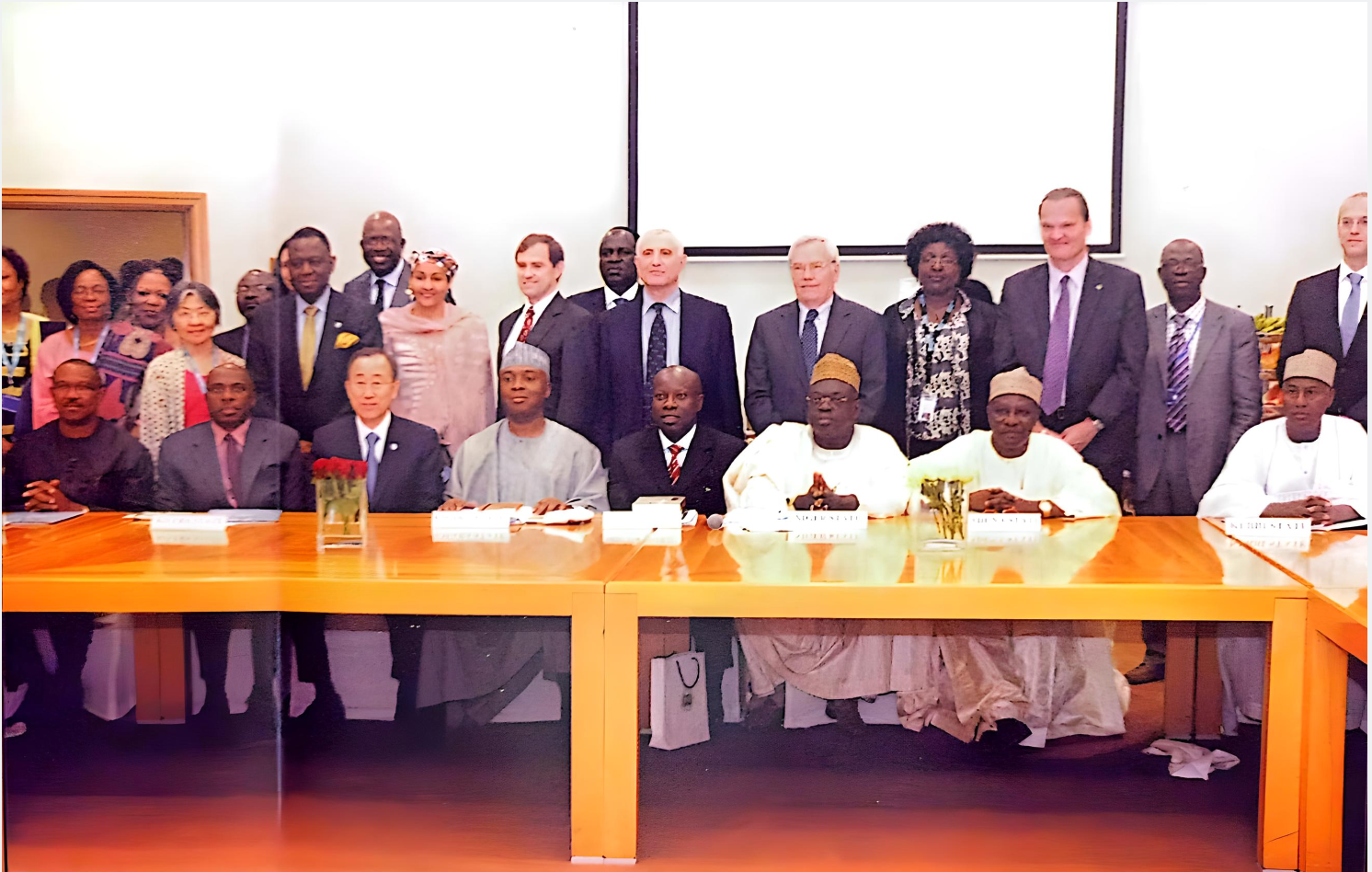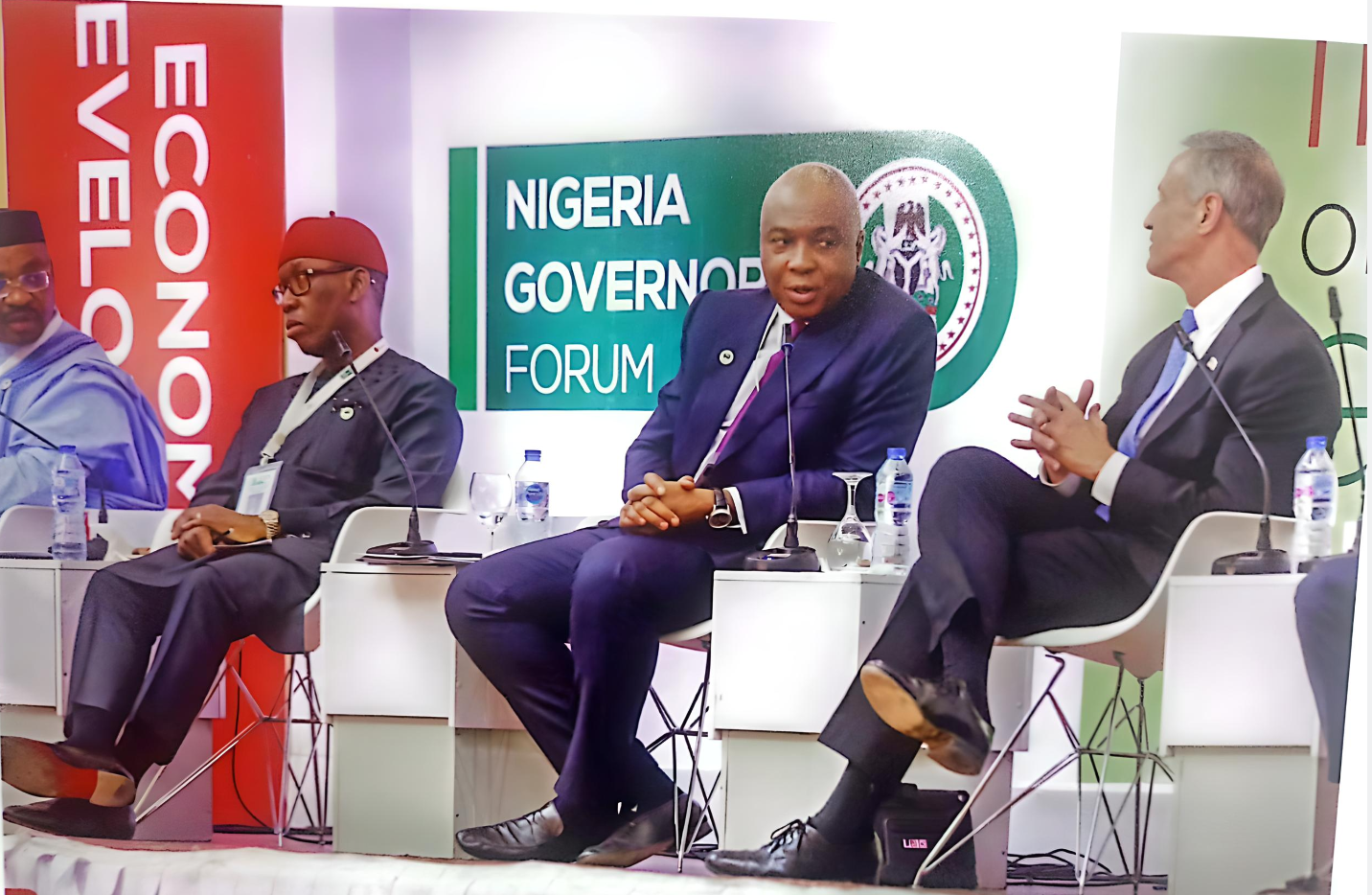THE STATE PEER REVIEW MECHANISM: A PILLAR OF ACCOUNTABILITY
Evolution of the NGF:
Two Phases of Development: The Nigerian Governors’ Forum (NGF) has experienced two distinct phases in its history: the initial period from 1999-2008 characterized by minimal activity, low attendance, and an underdeveloped secretariat; and the transformative phase beginning in 2009. The latter commenced when Dr. Abubakar Bukola Saraki assumed the chairmanship of the NGF, reinvigorating the forum through strategic restructuring.
Saraki’s Leadership and the Advent of SPRM: Under Dr. Saraki’s guidance, the NGF launched the State Peer Review Mechanism (SPRM) in 2009. This initiative grew out of his innovative peer-review tours across various states, aimed at fostering development, enhancing governance, and sharing best practices. The transformation led the NGF to transition from a largely political entity into a more policy-focused, people-centric organization.

SPRM:
The Mechanics and Impact: The SPRM distinguished itself by enabling states to elevate their governance and development through meticulous reviews of their policies, plans, and programs. Furthermore, it facilitated the sharing of constructive experiences and best practices via inter-state dialogues.
In July 2011, the SPRM Base Document was finalized. An 11-member steering committee, spearheaded by former Chief Justice of Nigeria, Justice Mohammed Lawal Uwais, was inaugurated in November of the same year.
Training and Implementation: By May 2012, 107 consultants—selected from a highly competitive pool of around 4,000 applicants—were trained to assist the Steering Committee during the Technical Review Mission. Justice Uwais and Dr. Saraki, who also served as Vice Chairman of the Steering Committee, personally led two intensive training sessions for these consultants.
By May 2012, 107 consultants—selected from a highly competitive pool of around 4,000 applicants—were trained to assist the Steering Committee during the Technical Review Mission. Justice Uwais and Dr. Saraki, who also served as Vice Chairman of the Steering Committee, personally led two intensive training sessions for these consultants.
The Legacy of SPRM:
The SPRM stands as the NGF’s flagship program and holds the distinction of being the world’s first sub-national peer review mechanism. Its implementation has tangibly improved governance in the states where it has been applied, affirming its value as an indispensable tool for good governance and development at the sub-national level… Read More
THE ROLE OF NGF IN ESTABLISHING THE SOVEREIGN WEALTH FUND
Initial Resistance to the NSIA: In 2011, the proposal to create the Nigeria Sovereign Investment Authority (NSIA) met with significant opposition from the majority of Nigeria’s 36 state governors. The NSIA was conceived to manage a Sovereign Wealth Fund (SWF) that would enable the federal government to invest in diverse sectors and mitigate economic risks.
Dr. Saraki’s Visionary Leadership: Recognizing the long-term advantages of the SWF, Dr. Abubakar Bukola Saraki, then serving as the NGF Chairman, partnered with the Ministry of Finance to adapt the fund in a way that would benefit the states’ development. Utilizing his position and persuasive skills, Dr. Saraki succeeded in swaying his gubernatorial colleagues to endorse the NSIA initiative
The Outcome: A Thriving Fund: Today, the NSIA manages assets exceeding $3.5 billion, serving as a testament to the foresight of leaders like Dr. Saraki who understood the broader economic implications and benefits that such a fund could bring to Nigeria… Read More

4. Strategic Measures for Quality Education: Dr. Saraki’s tenure ushered in innovative strategies for quality education. Enforced school attendance, strategic recruitment and redistribution of educators between rural and urban regions led to improved student-to-qualified teacher ratios. From 34:1 in 2006, the ratio plummeted to an impressive 13:1 by 2009 for primary education, showcasing a systematic approach to quality education.
5. Infrastructure Enhancement: Recognizing the importance of conducive learning environments, the administration aggressively pursued the construction and renovation of classrooms. Consequently, the pupil-to-classroom ratio saw substantial improvements, ensuring students had better access to quality learning spaces.
The Saraki era in Kwara State serves as a testament to the transformative power of committed governance in the educational sector. Under his leadership, the state emerged as a beacon for educational advancements, ensuring a brighter future for its young populace.
ROLE OF NGF IN ERADICATING POLIO IN NIGERIA
The Shift from Top-Down to Coordinated Approach: Prior to 2009, Nigeria’s anti-polio initiatives were primarily top-down, coordinated by the federal government in partnership with international organizations. Upon assuming the NGF Chairmanship, Dr. Abubakar Bukola Saraki transformed this approach. He initiated a more coordinated strategy, uniting multinational donors, the NGF Secretariat, and the governments of the 36 states and the Federal Capital Territory in a collective effort to eliminate polio.
Instilling Confidence Among Development Partners: Dr. Saraki’s leadership not only led to more proactive and focused efforts by state governments but also reassured development partners and non-governmental organizations. His initiatives gave them confidence in the direction and focus of state-led anti-polio activities.
Global Partnerships for Local Impact: One of Dr. Saraki’s significant accomplishments was forging partnerships with international bodies such as the Bill and Melinda Gates Foundation. These collaborations allowed the NGF to financially support and implement more robust polio and immunization programs across Nigeria.
Landmark Initiatives: The Immunisation Leadership Challenge and the Abuja Commitment under Dr. Saraki’s stewardship, were realized. In February 2009, Bill Gates was instrumental in securing commitments from all 36 state governors to actively engage in polio eradication and enhance immunization programs. These efforts were pivotal in ultimately eradicating polio in Nigeria… Read More

6. Emergency Medical Response: To combat the tragic repercussions of road accidents, the administration rolled out a comprehensive Accident and Emergency Programme. Strategic ambulance stations were set up on vital highways, ensuring timely medical intervention.
7. Advancing Diagnostic Capabilities: A crowning achievement was the establishment of the Kwara Advanced Medical Diagnostic Centre. Armed with state-of-the-art equipment, the center serves as a beacon for diagnostic excellence for North Central Nigeria. Additionally, significant inroads were made in managing and controlling chronic ailments such as hypertension and diabetes.
Under Dr. Saraki’s visionary leadership, Kwara State witnessed a healthcare renaissance, underscoring the profound impact of thoughtful governance on the well-being of a populace.
THE DOCTRINE OF NECESSITY: NAVIGATING THE 'YAR'ADUA-JONATHAN' IMPASSE
The Crisis of Presidential Absence: In 2010, Nigeria found itself in a political quagmire when President Umaru Musa Yar’Adua traveled to Saudi Arabia for medical treatment without officially transferring power to Vice President Goodluck Ebele Jonathan. This situation created a leadership vacuum, putting the nation at a critical juncture.
As the Chairman of the NGF, Dr. Abubakar Bukola Saraki took a decisive stance, advocating for the ‘Doctrine of Necessity.’ This legal principle served as a basis to install Vice President Jonathan as the Acting President, thereby filling the leadership void.
Resolution and Approval by the National Assembly: On February 9, 2010, the National Assembly approved the ‘Doctrine of Necessity’ resolution. Reflecting on this decision, Governor Mu’azu Babangida Aliyu of Niger State, who served from 2007 to 2015, highlighted the influential role of the NGF. He remarked, “While many accolades are given to the National Assembly, it’s important to recognize that the ‘Doctrine of Necessity’ was initially put forward by the NGF. Our main priority is to uphold the Constitution of the Federal Republic of Nigeria, not to seek direct acknowledgment. A community that does not adhere to its own rules is bound to face stagnation. Our foremost goal in tackling issues is to enhance the quality of democratic governance… Read More

4. Cashew Processing and More: Ogbondoroko was chosen as the locus for a pioneering cashew processing venture. This initiative drew the eyes (and investments) of giants like the Olam Cashew Processing factory. The subsequent infusion of funds, primarily from Singapore, not only resurrected the facility but also provided employment, accommodation, and transport perks to thousands.
5. Diversification and Investment: The aforementioned facility also became a hub for fish feed production. With an initial impressive capacity, the facility soon attracted a $50 million investment, providing employment to a significant portion of the populace.
Dr. Saraki’s leadership transformed Kwara State into a paragon of agricultural potential realized, demonstrating what visionary governance can achieve for the agrarian community and the broader populace.

